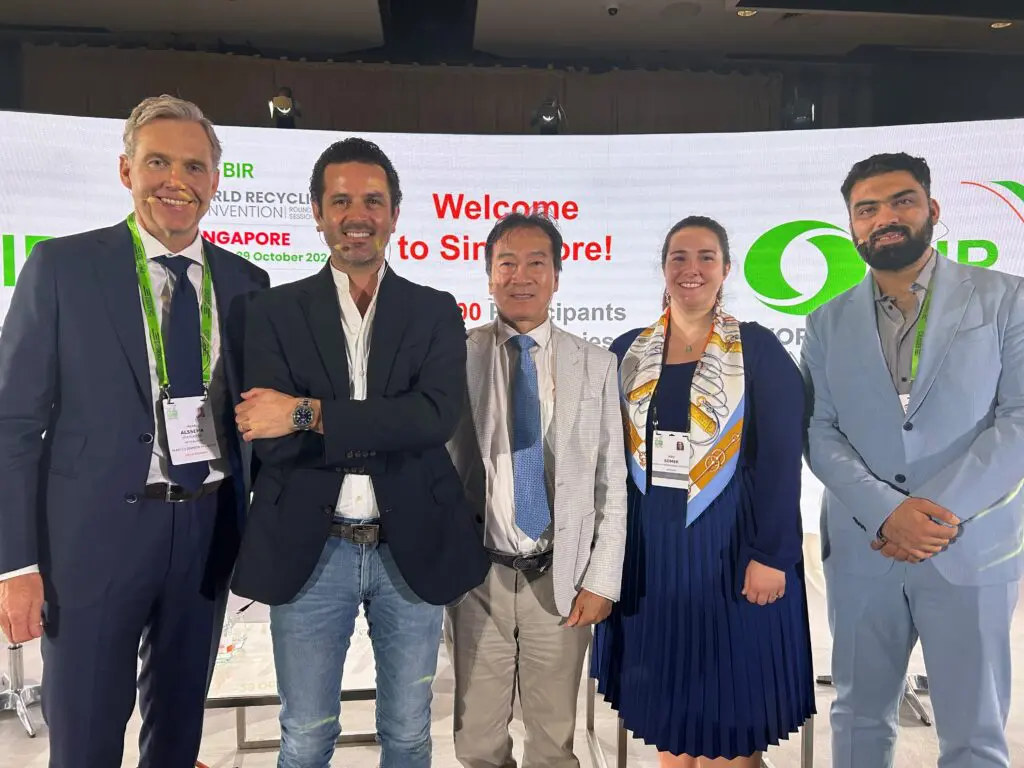Struggling markets, extremely low demand for recycled materials, and limited policy support have left plastics recyclers grappling with an uncertain future, industry experts warned at the latest BIR Convention in Singapore.
They called for urgent action to implement mandatory recycled content requirements and extended producer responsibility (EPR) schemes to prevent the collapse of crucial recycling infrastructure.
BIR’s Plastics division chairman Henk Alssema of Vita Plastics in the Netherlands, painted a bleak picture of the sector’s current state: ‘The market in Europe, but also globally, is really struggling to survive,’ he said, pointing to rising production costs and shrinking margins.
Bankruptcy wave
Alssema underscored the consequences, citing recent bankruptcies among Dutch recycling firms. ‘In the Netherlands alone, five out of 50 recycling companies have shut their doors recently,’ he said. ‘We’re seeing similar practices in Belgium, Germany and other European countries, threatening to dismantle recycling infrastructure built over decades.’
Alssema urged policymakers to fast-track circular economy initiatives, including regulations requiring recycled content in new products.
Low recycling rates
Steve Wong, president of the China Sustainable Plastics Association, revealed that only 8.3% of the 400 million tonnes of plastic produced per year worldwide is recycled. He warned that, without regulatory incentives, the shortfall would persist. Wong highlighted a gap between global recycling capacity and potential demand, noting that mandatory recycled content could drive up recycling requirements dramatically, though current systems lack the capacity to meet such demand.
Max Craipeau, ceo of Singapore-based Greencore Resources, described a very pessimistic South-East Asia, where recycling lacks legislative support. ‘Without clear mandates, brands facing their own economic challenges simply opt for cheaper virgin plastics,’ he said, advocating for a global package of mandatory recycled content, EPR schemes, and taxes on virgin plastic use.
Signs of hope
Challenges persist for broader initiatives, such as Singapore’s proposed deposit refund scheme (DRS) aimed at raising plastic bottle recycling from below 10% to over 80%. Originally set for 2023, the scheme now faces delays until 2026 due to resistance from brands and logistical issues, though Craipeau expressed optimism about eventual implementation.
The Middle East region faces similar difficulties, with weak demand for recycled plastic, though new EPR initiatives in the UAE and Saudi Arabia signal a potential shift.
Lack of true force
BIR’s trade and environment director Alev Somer warned that international negotiations for a legally binding Global Plastics Treaty are stalling, with many countries now leaning toward voluntary agreements, a move Somer argued would lack the necessary force to bring serious change. According to BIR, only mandatory measures can help boost the industry through ongoing economic and environmental challenges.
Don't hesitate to contact us to share your input and ideas. Subscribe to the magazine or (free) newsletter.



